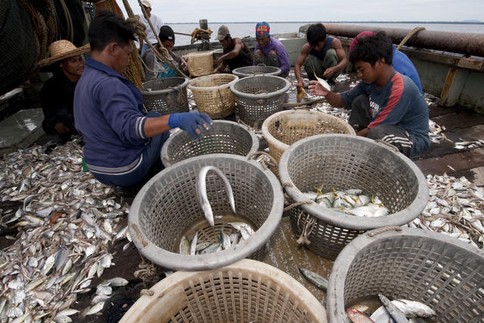Nations worldwide have reached their ecological ‘spending limit’ on Tuesday, August 20, or Earth Overshoot Day, the estimated date when people start to consume more than the allotted amount of natural resources in a year.
The ‘green letter day’ is an annual awareness campaign by the World Wildlife Fund (WWF) and its partner, the Global Footprint Network (GFN).
The network measures the world’s ecological footprint vis-à-vis its biocapacity, or the amount of resources exhausted and carbon emissions expelled in relation to the ability of nature to produce these resources and absorb these emissions.
According to GFN and WWF, people around the globe are officially on zero balance on nature’s accounting sheet of resources required to survive.
Jim Leape, WWF International director general, said, “Nature is the basis of our wellbeing and our prosperity – but we are using up way too much of the Earth’s finite resources … simply put, we are asking for more than what we have available.”
Currently, mankind’s demand for renewable resources and its ecosystem services is equivalent to more than one and a half Earths, based on calculations of the Global Footprint Network. In less than eight months, people have used up all the resources that the planet can regenerate this year.
Countries would need almost double the natural resources of the planet come the middle of the century with the current rate of consumption, they explained. China, for instance, needs 2.5 ‘Chinas’ to support its demand, while Japan requires 7.1 ‘Japans’ and the United States needs 1.9 of itself.
Because of this overspending, the world is running at an ecological deficit, said the network. Climate change is one significant impact, as well as the loss of valuable species, forests, degraded land, and also higher commodity prices, among other consequences.
In Malaysia, almost 92 per cent of its fishery resources were lost between 1971 and 2007 due to overfishing, said WWF-Malaysia. This was to cater to an increasing national seafood demand, which is one of the highest in Asia.
According to Dato’ Dr Dionysius Sharma, executive director and chief executive officer of the local WWF, “WWF-Malaysia is working with government agencies, businesses, local communities and consumers to reverse the decline in fish stocks and achieve sustainable fisheries management.”
The organisation implemented a ‘Save Our Seafood 2.0’ campaign that encourages customers to purchase products with an eco-label from the Marine Stewardship Council (MSC) or Aquaculture Stewardship Council (ASC).
Choosing such sustainable consumer products, including wood that is certified by the Forest Stewardship Council (FSC), helps promote better management of natural resources, said WWF and the Global Footprint Network.
They added that preparing for the future is in the self-interest of each country.
The two organisations suggest switching to clean, renewable energy. Using electricity generated from solar and wind sources reduces carbon emissions that affect the climate. “By taking action now we can reverse the trend,” they asserted.
In 1961, when WWF began, the world’s ecological footprint was lighter and more sustainable, said the two. People were only using two thirds of the Earth’s available resources and most countries had ecological reserves.
Today, even nations that have reserves are experiencing a decline, such as Australia, Brazil, Indonesia and Sweden. According to the network, “We can no longer sustain a widening budget gap between what nature is able to provide and how much our infrastructure, economies and lifestyles require.”
Leape said, “For a clean and healthy future for our children, we must preserve the natural capital that is left – and be much better stewards of the planet we call home.”
“We need to change our consumption patterns by reducing unnecessary use of natural resources, and make informed choices for sustainably produced products,” Dr Sharma added.

